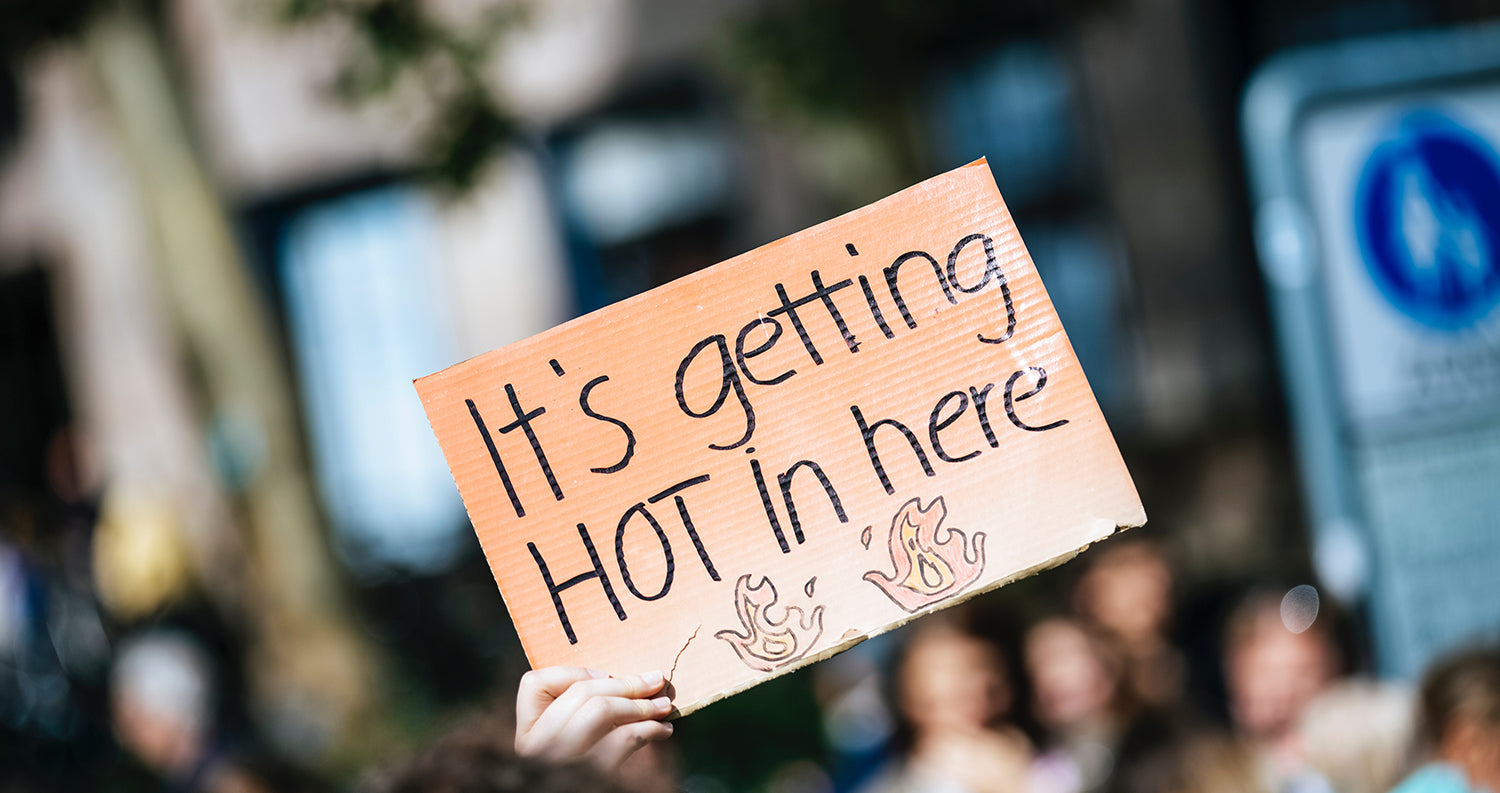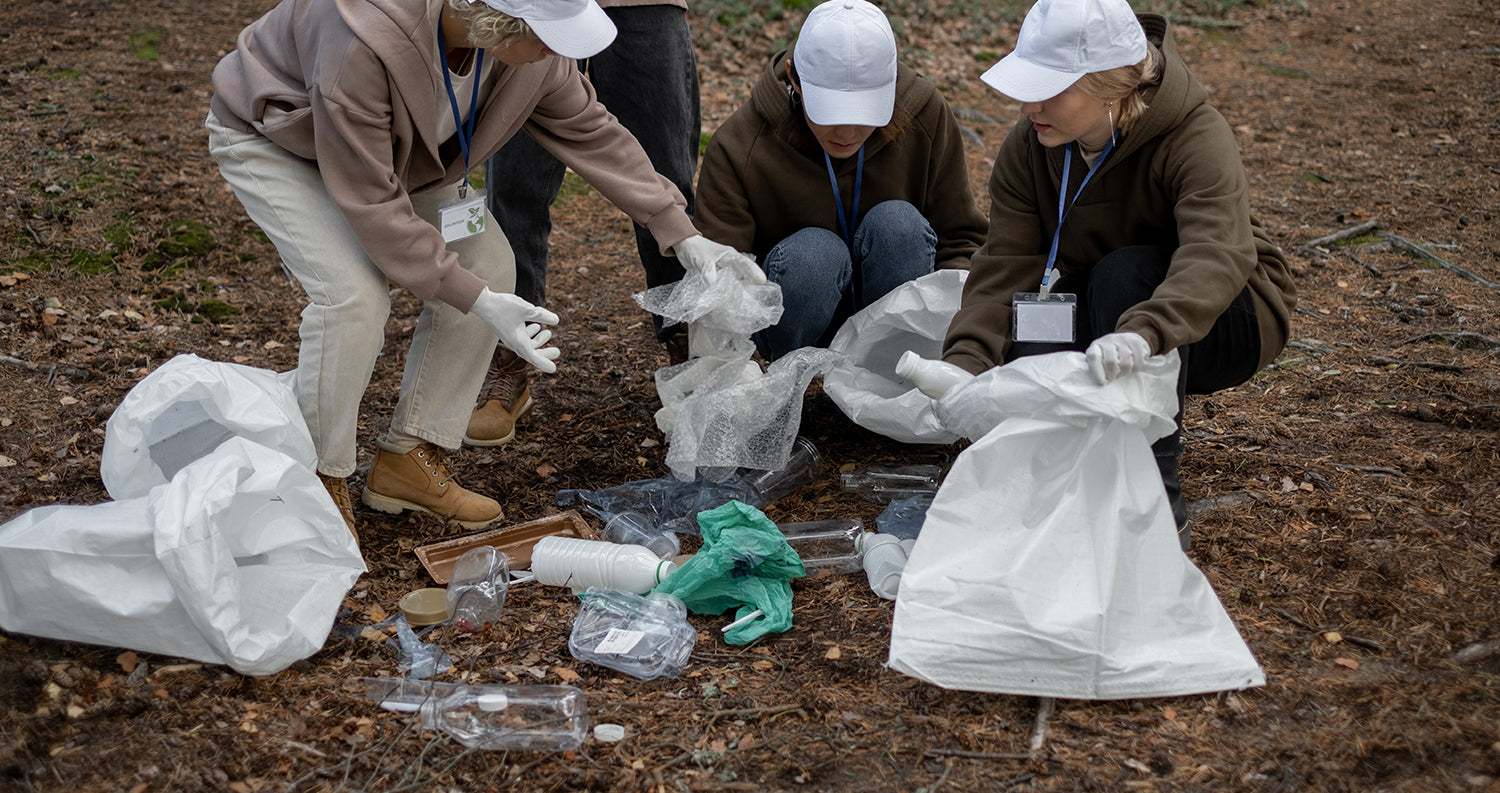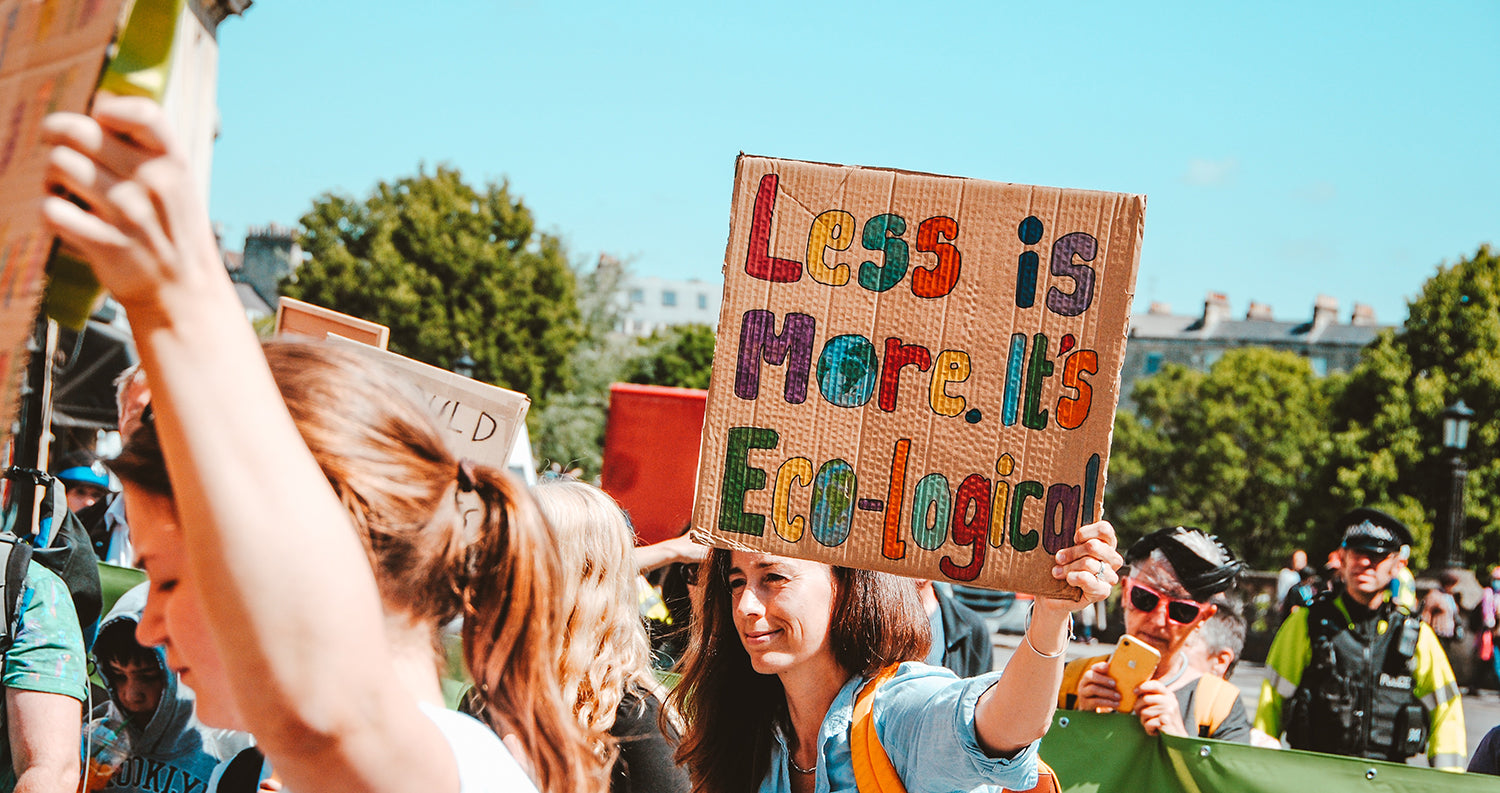Feeling stressed and frustrated about the climate crisis? Don't worry, we get you! Climate anxiety is being felt by an increasing amount of people globally. What is it exactly? Climate anxiety, or "eco-distress", is defined as “a chronic fear of environmental doom.”
It’s experienced by people of all ages, to varying degrees, but is especially acute in children, adolescents and young adults. Greta Thunberg started feeling the effects severely from age eight. The issue is unsurprising when you consider the amount of attention now focused on the climate crisis and its impacts. More attention is important, but it is undeniably scary. It’s easy to become overwhelmed and, might we add, perfectly natural if that happens.
In this article, we'll examine the root causes of climate anxiety and the most effective ways to come together, harness the positive energy, get inspired and persevere through the tough moments.
Quick links
-
The cause and effect of climate anxiety
-
Steps for overcoming climate anxiety and eco-guilt
-
How to manage your anxiety over the climate crisis?
-
Nurturing eco-mindfulness beyond ourselves
The cause and effect of climate anxiety
Climate anxiety is mainly caused by two things. The first is excessively worrying about the future and what climate change might mean for ourselves and future generations. The second is guilt about personal actions, otherwise known as eco-guilt. You’ve probably experienced eco-guilt yourself after making a purchase or catching a flight. We know we have.

Anxiety, whether caused by climate concern or another trigger, effects everyone differently but a common symptom is inaction. An overload of stress and anxiety means that people either fail to deal with something, or don’t deal with it effectively. We’re hardwired to disengage from something we find overwhelmingly difficult or disturbing.
And what we do?
We just give up. Further, obsessing over every individual action can lead us to be distracted from the bigger picture, which is acting collectively to bring about systemic change. We’re not saying individual actions such as curbing consumption aren’t important, they are, but to beat the climate crisis it will require radical change at every level.
Also, who wants to be part of a movement or organisation in which they feel constantly green-shamed (being abused) for their actions? This is why the media, and activist groups, have to be careful with their messaging around the climate crisis to not scare people off.
Steps for overcoming climate anxiety and eco-guilt
“Work starts within. We need to focus externally, take care of the climate and acknowledge injustices happening in the world. But to do that, and to understand our own role, starts by having an honest, gentle and compassionate conversation with ourselves.” - Oneika Mays.
A low level of anxiety is actually helpful. Climate anxiety is, after all, the root cause of climate action. If none of us felt at least a little anxious about our futures then we wouldn’t do anything to improve our prospects. The emotions you may be feeling are a healthy response to the existential threat of climate change. The key is being compassionate to yourself and others. It’s accepting that you’re not perfect, nobody is.

As our good friend, activist and mindfulness teacher, Oneika Mays, explains: work starts within. It’s about having safe and compassionate practices to deal with frustration and anxiety in a way that’s healthy and safe and makes sense.
This can be described as a form of “internal activism” that allows us to overcome our natural psychological defences and believe that our actions do make a difference. From that place comes hope, and hope is what we really need.
Talking about climate anxiety with a professional
But it’s tough. In some cases seeking professional help might be necessary. Therapists who treat people for climate anxiety also encourage people to open up and share their feelings with others. Social support from likeminded people can provide resilience to stress and help you to find a feeling of belonging that helps with motivation.
Activism in action - seeing the change locally
Last year we interviewed Diana Ivanova, a climate researcher who, understandably, finds it tough dealing with the psychological strain of her subject matter. She recommends staying active and engaging in different projects at home or in the community where you can see first hand the difference you make.
“Stay active with different things where you can actively make a change, so you can see the change resulting from your own actions. I find that to be quite helpful because when we focus on the global level, it's really hard to see where we make a difference, and it's really hard to see the ripples of our actions. But, on a more local level, that's much more clear and really helps with motivation.” - Diana Ivanova.
Also, let's not forget that the media does tend to focus on the doom and gloom a bit. Something we try to focus on is all the fantastic, inspirational progress that is being carried out on behalf of the environment every day.

So, how to manage your anxiety over the climate crisis?
So, to summarise, the best ways to overcome climate anxiety are:
Recognise your feelings as perfectly natural
- Be compassionate with yourself and others
- Open up and share your feelings with other people. The Climate Psychology Alliance runs regular online events which are safe places to express fears and uncertainties
- Stay active and focus on areas where you can see your actions make a difference
- Get inspired! Look out for and feel encouraged by all the great stuff happening in the environmental movement right now. We share any goodies we come across on our Instagram.
- Don’t be afraid to seek professional help if needed.
Anxiety is natural but, by using these solutions, you have some tools to help not let it overwhelm you. There are a lot of positive things happening in the environmental movement right now, like more and more people using renewable energy. Conscious consumerism and living a more sustainable lifestyle is a worthy aim, but don’t guilt-trip yourself too much if you decide to eat a steak or grab a takeaway coffee.
For a large helping of positivity, check out our interview with effervescent peace and climate activist, Satish Kumar.
Nurturing eco-mindfulness beyond ourselves
As we go from feeling worried about the environment to being more mindful of it, it's important to think beyond just ourselves. Being truly aware of our impact involves making a difference not only in our own lives but also in our communities.

Think about being someone who talks about and supports learning about the environment. Share what you know about eco-friendly choices with your friends, family, and coworkers. Plan local activities, like workshops or community clean-ups, to make a bigger impact together. Remember, each small action, when multiplied, contributes to significant change.
Also, it's good to know what rules and plans there are about the environment where you live. Join discussions about these issues, and let your leaders know what you think by writing letters or going to community meetings. Encourage others to do the same because when we all speak up, it can lead to positive changes.
~
We hope this article helped you in some way. If you have an insight or opinion on this then please reach out to Emilia Cullborg at ec@agood.com.





























